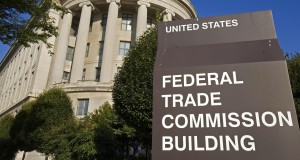A sample text widget
Etiam pulvinar consectetur dolor sed malesuada. Ut convallis
euismod dolor nec pretium. Nunc ut tristique massa.
Nam sodales mi vitae dolor ullamcorper et vulputate enim accumsan.
Morbi orci magna, tincidunt vitae molestie nec, molestie at mi. Nulla nulla lorem,
suscipit in posuere in, interdum non magna.
|
There’s a famous old political adage — “where you stand is where sit” (also known as Miles’ Law) — meaning basically that government policy positions are dictated more by agency imperative and institutional memory than objective consideration of the public interest. A related concept is “regulatory capture,” where administrative agencies over time become defenders of the status quo and pursue objectives more for regulated firms as their constituency than consumers. Capture theory is closely related to the “rent-seeking” and “political failure” theories developed by the public choice school of economics. Or as Harold Demsetz put it well in his influential 1968 article, Why Regulate Utilities?, “in utility industries, regulation has often been sought because of the inconvenience of competition.”
That’s no longer limited to electricity companies and other public utilities these days. With the advent of rapid, low-cost entry into previously sheltered markets, powered by technology and the sharing economy, today’s incumbent industries are taking regulatory capture and politics as rent seeking to new heights. At DisCo we’ve written extensively about Uber, Lyft, Airbnb, Tesla and many other disruptive new start-ups that are facing a backlash from established industries (taxis, hotels and auto dealers, respectively) which use consumer protection as a Trojan Horse to disguise preventing or delaying competition on price, features and service. Politicians in locales as diverse as New York, New Jersey, San Antonio and Seattle (believe it or not!) have, wittingly it seems, gone along so far.

This is where what antitrust lawyers dub competition advocacy comes into play. Most antitrust policy in the U.S. is made in federal court as a result of merger, monopolization and horizontal collusion prosecutions launched by the Department of Justice (DOJ) and the Federal Trade Commission (FTC). But due to our federal-state system and a judge-made doctrine allowing states to exempt some markets from competition despite federal antitrust demands (government action, and private conduct to obtain such action, is challengeable in only relative narrow circumstances), much of the battle takes place in the legislative and regulatory arenas. Accordingly, competition advocacy is the primary tool available to antitrust enforcers in the U.S. to oppose state and local regulations favoring established firms over start-ups and parochially sheltering in-state companies from out-of-state competitors. The result is that for three decades the federal antitrust agencies have engaged in affirmative outreach to state and local legislators and regulators in the form of comments, letters and occasional lawsuits that seek to drive home the basic truths that competition outperforms regulation and the law should not pick winners and losers when it comes to evolving markets. (State attorneys general also undertake competition advocacy, principally through amicus briefs, as well.)
Continue reading Competition Advocacy Matters—Here’s Why and How
Tuesday was a big day in the world of tech-powered disruptive innovation. What the news of April 22nd shows, however, is expanding use of the legal process by incumbent industries to thwart change — and the unfortunately all too frequent concurrence of regulators and courts with that ancient mantra of obsolescent businesses, namely “consumer protection.” Old, entrenched industries frequently lean on their political connections and get the government to come up with some new justification (or recycle an old one) for shutting down upstart rivals or, at the very least, undermining their competitive advantages.
Tuesday witnessed two potentially landmark events, ones that may in time change this familiar paradigm. The first was the morning hearing before the U.S. Supreme Court in ABC v. Aereo, the broadcast networks’ copyright law challenge to the now well-known streaming IPTV start-up. The second, just slightly later in the day, were oral arguments at a New York state court in Albany over whether Airbnb will be permitted to offer its peer-to-peer apartment rental services in New York City, where a 2010 measure meant to curb unregulated hotels prohibits renting out an apartment for less than a month.

The DisCo Project has devoted a series of posts to the Aereo case. Like a Sony Betamax for the 21st century, the Supreme Court is being asked to decide whether moving technology that is lawful for an individual to use on his or her own becomes a copyright violation if offered over the Internet. But the major broadcast networks (like the movie studios who opposed VCR recording in the 1980s) are convinced their entire business model will collapse if Aereo is sanctioned, threatening the nuclear option of stopping over-the-air transmission in favor of all-cable distribution should Aereo prevail.
Airbnb, in contrast, is fighting an effort by New York regulators to collect the names of Airbnb hosts who are breaking the law by renting out multiple properties for short periods. The company, which is now estimated to be worth $10 billion, is framing the dispute as a case of government scooping up more data than it needs for purposes that are vague. What the tussle is really about, of course, is whether the renting public actually needs protection from “unregulated hotels” and, even if true, why Airbnb’s efforts to make a market for DIY rentals is at all harmful. Continue reading Tech Tuesday: Litigation, Legislation and Regulatory Protectionism
The U.S. economy has seen its share of disruptive technologies derailed (at least in time-to-market) by archaic legal regimes. Look to Uber’s taxi-hailing service and Airbnb’s apartment rental innovations as recent examples. Most times it’s a case of old assumptions about consumer protection and competition having lost validity with changed circumstances. Other times it’s simple protectionism by legacy incumbents, as in the legal assault on Aereo’s IPTV streaming service for alleged copyright infringement. In the case of electric auto developer Telsa Motors, however, it’s something a little different.
 The problem for Tesla’s well-reviewed vehicles — Consumer Reports gave the new Tesla S its highest car rating ever — is not technical, as the California start-up boasts impressive lithium battery innovations and is aggressively building its own chain of recharging stations. Instead the constraint is a plethora of state laws (48 in all) that prohibit or limit automobile manufacturers from selling direct to consumers or owning auto dealerships. These statutes, which date to the 1950s, are matched by a federal law known as the “Automobile Dealers’ Day In Court Act.” That legislation is an anomaly which allows dealers (franchisees) to sue in their home federal district court and recover legal fees if a manufacturer fails to “act in good faith in performing or complying with any of the terms or provisions of the franchise, or in terminating, canceling or not renewing the franchise with said dealer.” (These sorts of lawsuits would otherwise require a minimum of $75,000 at stake, would be governed by state law and would not have the threat of fee-shifting.) The problem for Tesla’s well-reviewed vehicles — Consumer Reports gave the new Tesla S its highest car rating ever — is not technical, as the California start-up boasts impressive lithium battery innovations and is aggressively building its own chain of recharging stations. Instead the constraint is a plethora of state laws (48 in all) that prohibit or limit automobile manufacturers from selling direct to consumers or owning auto dealerships. These statutes, which date to the 1950s, are matched by a federal law known as the “Automobile Dealers’ Day In Court Act.” That legislation is an anomaly which allows dealers (franchisees) to sue in their home federal district court and recover legal fees if a manufacturer fails to “act in good faith in performing or complying with any of the terms or provisions of the franchise, or in terminating, canceling or not renewing the franchise with said dealer.” (These sorts of lawsuits would otherwise require a minimum of $75,000 at stake, would be governed by state law and would not have the threat of fee-shifting.)
Continue reading Want A Tesla? You Can’t Buy One Here.
|
|



